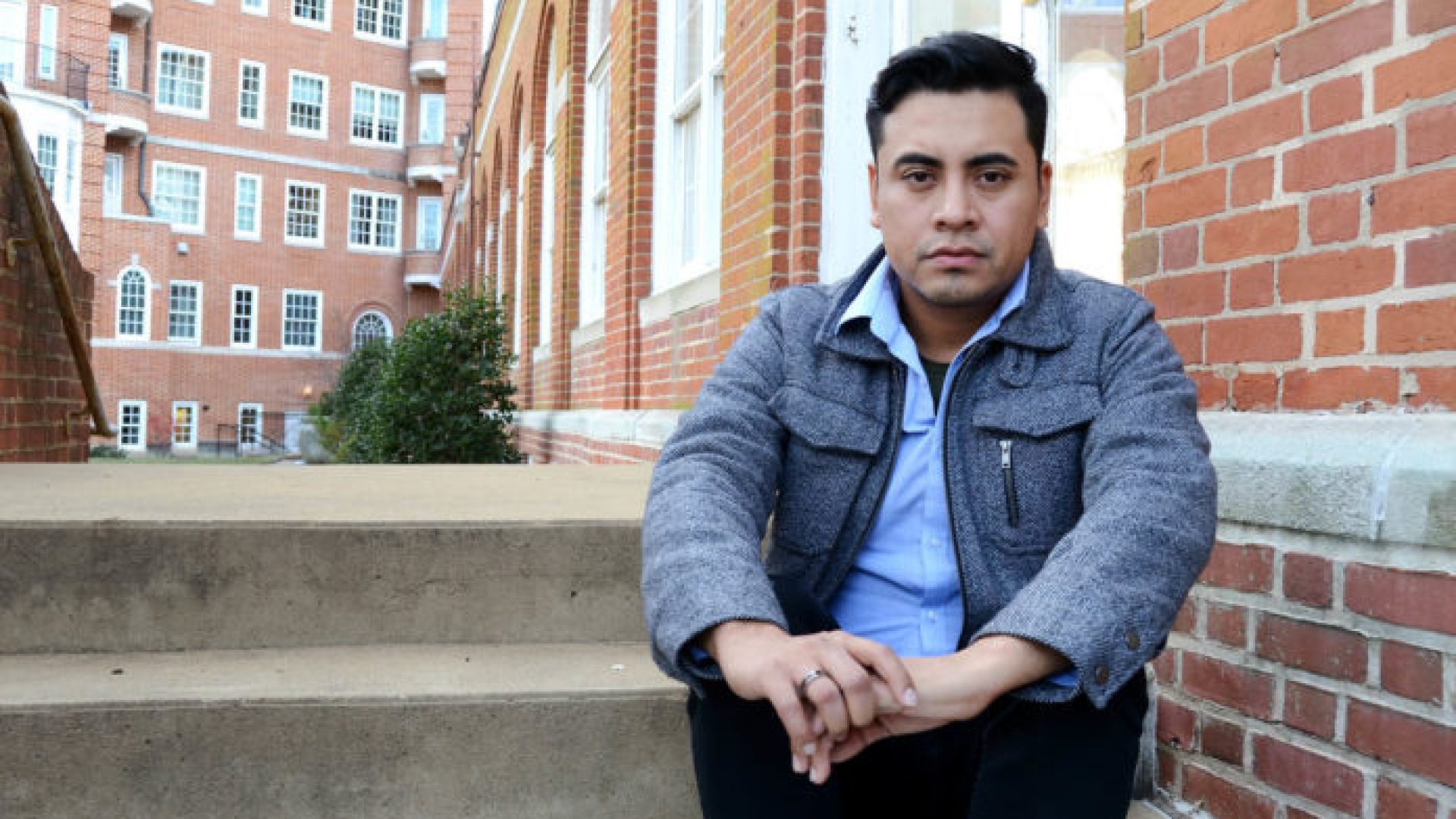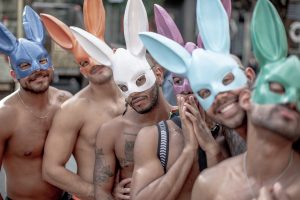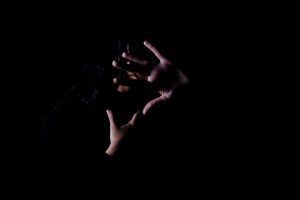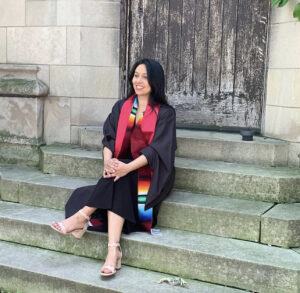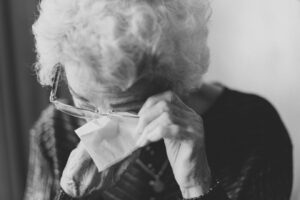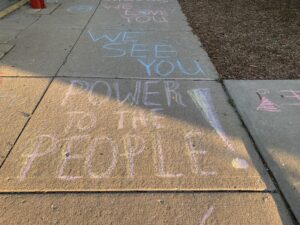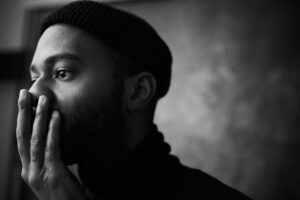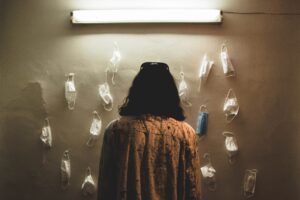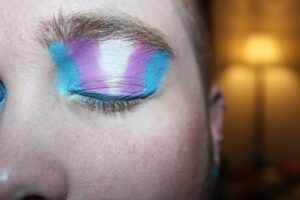People of Color in Media
Marginalized groups rarely get respectful, accurate, and realistic depictions in mainstream media. Often, we get watered down, stereotypical, and plain discriminatory content that deprives characters of any real substance or development. We have definitely seen some gains in recent years with movies such as Moonlight, COCO, Moana, Black Panther, and Hidden Figures. These movies highlight the strong qualities, of people of color (POC), Women, culture, and the LGBTQI community. This has not always been the case and historically many of these qualities and contributions would get shrouded in cheap jokes or stereotypical roles from Hollywood. One group that has been grossly misrepresented in the past has been the undocumented population in the United States, specifically, the LGBTQ undocumented population. Armando Ibañez the 36-year-old from Acapulco, Guerrero aims to change that. His project Undocumented Tales offers a unique look into the life of an undocumented young man, Fernando, as he experiences heartbreak, triumph, and obstacles unique to the immigrant experience. Fernando, based on Armando’s real-life experiences as a young gay immigrant, gives viewers an inside look at life beyond the Hollywood stereotypes. Armando’s main motivation for creating the series is his desire to explore and showcase the dynamics and complex life of young immigrants in the United States. As Ibañez told Q Voice News, “So often Hollywood just shows us crying and struggling,” he says, “What I love about ‘Undocumented Tales’ is that despite all the struggles, we show undocumented queer people laughing and celebrating their existence. We keep existing even though we have so many barriers and limitations in our way.”
A few months ago, I had the honor of watching one episode of the show during an online viewing party hosted by Woke, a digital platform created to provide access to diverse and representative media. To date, I have watched the first 2 episodes of the first season, as well as all of season two. What Armando has created is a unique, complex, celebration of the Latinx LGBTQI, and the immigrant experience. As I watched, I could not help but feel connected to the characters. Even as a U.S citizen, my family history shares many closely related moments to characters in the show. For, example the challenges of coming out are prominent throughout the series and I myself have struggled with the coming out process. Coming out when you are Latino can add a whole different level of complexity that is not always explored in the media. Fear of deportation is another huge connection I made with the show. Having parents who were not born in the U.S created large amounts of anxiety in our home. My brothers and I often worried and stressed over potentially having our parents exposed or targeted. Without a doubt, I believe that viewers will find a way to connect with Fernando and his friends in the show.
We had the opportunity recently to check-in with Armando and conduct a short interview about the mental health aspects in the show. Armando touches briefly on his intention to include mental health in the show and even a small spoiler for the next season.
The Interview
Can you tell us about the exact moment you decided to do the show? What was your emotional state processing the concept?
A few years ago. I was going through a depression for being an undocumented queer immigrant. I was giving up fighting for family acceptance and at the same time, I was letting my undocumented status affect me in every way. “Was the point of being alive?” I used to ask myself every day. During my depression, I started seeing a therapist and it was around the same time that a friend recommended a web series on YouTube named, Awkward Black Girl. I watched the series and that completely changed my life. Me devuelvelas ganasde vivir. “That’s me, that is me” I said. “I can do what she did. I can write my own stories too”, I thought. I realized I could tell the stories I had never see on screen. And that’s when the idea of creating a YouTube series about an undocumented queer immigrant living in L.A. came alive. That was during the summer of 2015. I started writing the first episodes and soon realized that writing was a therapy. Eventually, I started filming and then I realized that putting my words on the screen is healing for me and healing for others.

I’ve heard a lot about how you based the character on yourself and your own experiences. How much is Fernando like Armando and what is something that is completely different?
I think there is a lot of me not only in Fernando but also in other characters. Most of the experiences, in general, are stories that the undocumented community share in common. For instance, getting terminated from a job becausethe lack of a social security number is something our people experience all the time. Another important issue I wanted to talkis our love life. Relationships are always being affected by the closeted double life and the legal status. This is definitely something I wrote based on my own experiences. I think there’s like 70% of me in Fernando’s character. But there’s some of me in others characters too(Julian and Simon). There are dialogues, expressions or comments I usually do or say that I gave to other characters. When I see the other characters saying my lines on the screen, I secretly think “That’s also me”.
When I first spoke to you during the WOKE presentation of your show, I inquired about the mental health aspect your characters experience. The show does a great job of showing trauma, depression, and anxiety in the Latinx LGBTQ immigrant community. What do you feel is important for members of this community to do when experiencing mental health issues?
We need to talk about this because inmy experience, we come from circles where we don’t talk about mental health. With the series, I wanted to show the experiences we go through every day. We often lie to society, we lie to our families, because society makes us feel like our existence shouldn’t be accepted. Once we feel comfortable in our own skin. We have to face discrimination, and rejection from family, friends, and society in general. Either being in the closet or out. We deal with intolerance everywhere and unfortunately, this makes many of our people to give up. One important thing I wanted to show is the big spirit we have, that despite all obstaclesand barriers we face every day, we keep going no matter what. For me, creating this series was a way to talk to someone who might be feeling like I once felt a long time ago. I want to remind my people how beautiful we are.
You also explore DACA in the second season of the show. What are your thoughts on the current stalling by the U.S government on finding a solution for all those impacted?
I don’t think the current government wants to find a solution for immigrants. And the termination of DACA is the proof of that. It’s really sad to see what’s happening lately. So many hate crimes towards POC. Unfortunately, the Trump administration and its supporters do not care about facts. I just hope that during these times new generations feel encouraged to make the changes in this government. I hope that we continue working hard to change the current hate and ignorant idea that white people have from POC in general.
In one episode the focus is on Fernando becoming bitter. We know that irritability, hopelessness, and mood swings can be symptoms of depression. You did a great job showing how stressors in the immigrant community affect mental health. What would you say to other Latinx LGBTQ immigrants out there who may be feeling the way Fernando was in that Episode?
I would tell them not to give up. I will tell them to talk and look for support. That scene is very personal because I feel that’s how I used to react during moments of frustration. I wanted to show Fernando as a human being and not the typical good lead character. And also, I also wanted to show Fernando apologizing because I feel that in my community we don’t know what apologies are. Sometimes, when we are frustrated, we can’t control our emotions and we tent to explode. I think Fernando was very frustrated because he felt he was not being heard. And on top of that, we have the debatebetween what it means to be a good immigrant and have goals in life. I think is very important to learn how to communicate our pain. Sometimes we want people, friends, family etc to understand our struggles and the fact is that even if we explain what’s happening to us, some people won’t be able to understand our pain just because they might not know what it means to be undocumented or because they have different experiences in life.

Throughout the second season, you explore Fernando’s love life. How do you feel being LGBTQ in the immigrant population differs from the U.S born LGBTQ community?
It differs a lot. The love and relationship life is one of my main focuses in the series. In general dating while being undocumented gives me a lot of anxiety. You often have to think about how to reveal your legal status to your love interest. Interactions are very awkward. There are a lot of insecurities that come with that, you avoid certain topics until you find a sign that tells you that you can talk about your legal status and that person might be ok with you being undocumented. I think this is why the undocumented audience feels related to my character. Even undocumented people that don’t identify as part of the LGBTQ community have come to me sharing their love stories and how the undocumented status affected the relationship because U.S. born partners couldn’t understand the struggles.
During the second season, you also introduced transgender characters in the show. For those who do not know, transgender women of color have one if not the highest death rates caused by violence in our country. Why did you feel it was important to include them in the show and how do you believe their experience differs from other members of the LGBTQ community?
Transgender women are the more vulnerable people in general. Society denies their existence every day, everywhere. I think it was important to show the intersectionality of being POC, undocumented, and trans. Also, Fernando’s story does not represent all of the stories. We have thousands of stories and even though I knew I had no resources, I tried to include other stories. Alejandra was one of them. Her story shows the violence the transgender community faces all the time. And then we have the character, Jessica, in episode 5. Jessica is coming out of the detention center in one of the episodes, she is escaping violence from Guatemala. Which is mostly the main reason our trans sisters migrate to this country looking for a better life. I didn’t want to focus only on the struggles of violence our community goes through but I also wanted to show the amazing spirit they have, the other face of our obstacles. Alejandra, she is a badass woman. Despite all the barriers she encounters at home, she has a big heart, she wants to help her people. She wants to help her undocumented community. She doesn’t care if they are ignorant, transphobic o hateful people. I want the audience to see that. It is also important to say that Alejandra’s and Fernando’s stories do not represent all the community’s stories.

Going back to the mental health topic. We know that mental health services such as therapy often carry a stigma. It seems that this stigma may even be stronger in the Latinx community. Would you ever consider including a character such as a therapist in your show? Would Fernando be open to having mental health services?
OMG. If you’re trying to get spoilers from me about season 3 well, bingo. Hahaha. I think season 3 will definitely touch a little bit on that. For me being undocumented means that some days you feel completely positive and happy and then, one situation, comment in the news or anything reminds you that you’re undocumented and that our lives can change any minute. We go through so much every day. Sometimes we don’t even stop to take care of our mental health. In my case, I started this show after a big depression. And it’s important to mention that I didn’t even know I had it. I was “living” my everyday life. Going to school, work, going out, etc. But inside me nothing made sense. I didn’t see a point to be alive. After my first panic attack, I started getting professional help. I think that our immigrants’ family never talk about mental health. Especially our parents. They are so used to keep going and dealing with everyday problems that they think that’s how life is, and it’s not. New generations like us, we realized that mental health is real but we never think any of us will suffer from that. That happened to me. I will definitely touch on that for next season. So, stay tuned.
We personally want to thank Armando for pushing the envelope when it comes to representation for the Latinx LGBTQI Immigrants in the United States. As an LGBTQI Latinx man growing up in the United States, I often found myself feeling scared and wondering about many of the subjects Armando touches on in his show. This is yet another example of why representation is so important. It can be lonely and isolative when it feels like we’re the only ones dealing with these types of situations. Everyone deserves a chance to see themselves represented, valued, and appreciated in mass media. In an age where things appear to be heading backward, I am glad that we have shows like Armando’s to continue providing hope and pride in sharing the untold stories of our community.
Catch the show on YouTube and get ready to laugh, cry, and smile as you watch Fernando and all his friends deal with daily struggles of living undocumented in the United States.
http://www.undocumentedtales.com/

Luis is a Licensed Marriage & Family Therapist who graduated from Long Beach State University with a Masters degree in Counseling Psychology (2015). He also has a Bachelors's degree in Child and Adolescent Development with an emphasis on Public Policy from San Francisco State University (2011). Luis has over 9 years of experience working with children and families both in education and mental health. Previously, Luis worked for a non-profit agency in San Francisco, CA providing mental health consultation in early head start programs and SFUSD pre-schools. Currently, Luis works at Kaiser in San Francisco providing mental health services.
His therapeutic interests include working with Trauma, the LGBTQ community, Children, Families, Couples, and POC. His personal interests include; Films, Reading, Writing, Art, Travelling, Disney, and Food. He is also a recipient of the California State Stipend award (2015). PsychoSocial is part of Luis' dedication to mental health and an example of his passion to educate others. Luis hopes that through PsychoSocial he will be able to help in the fight to end the stigma around mental illness.
#EndtheStigma
-
Luis Cornejo, LMFThttps://psychosocial.media/author/psychosocial/September 18, 2017
-
Luis Cornejo, LMFThttps://psychosocial.media/author/psychosocial/January 28, 2018

